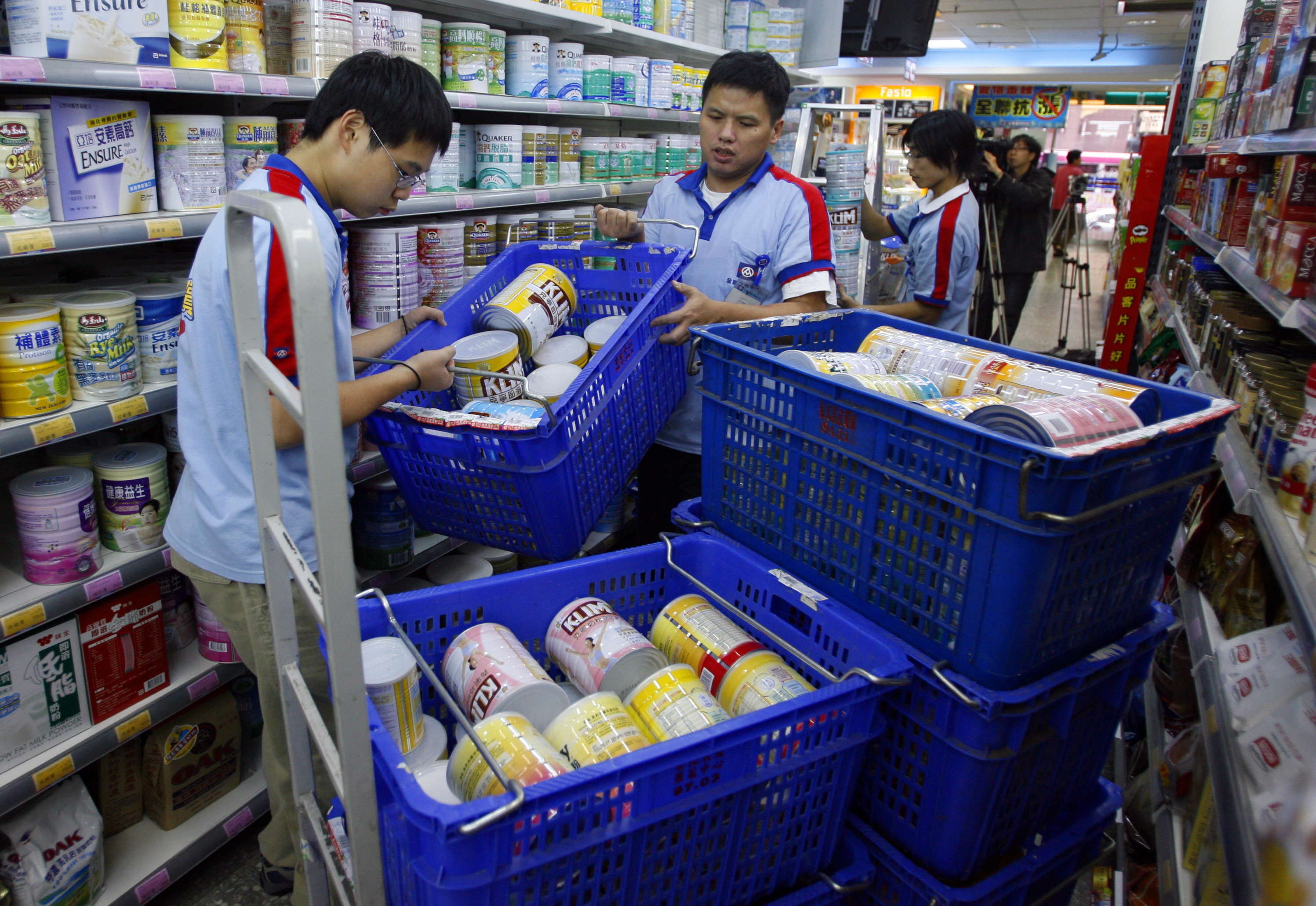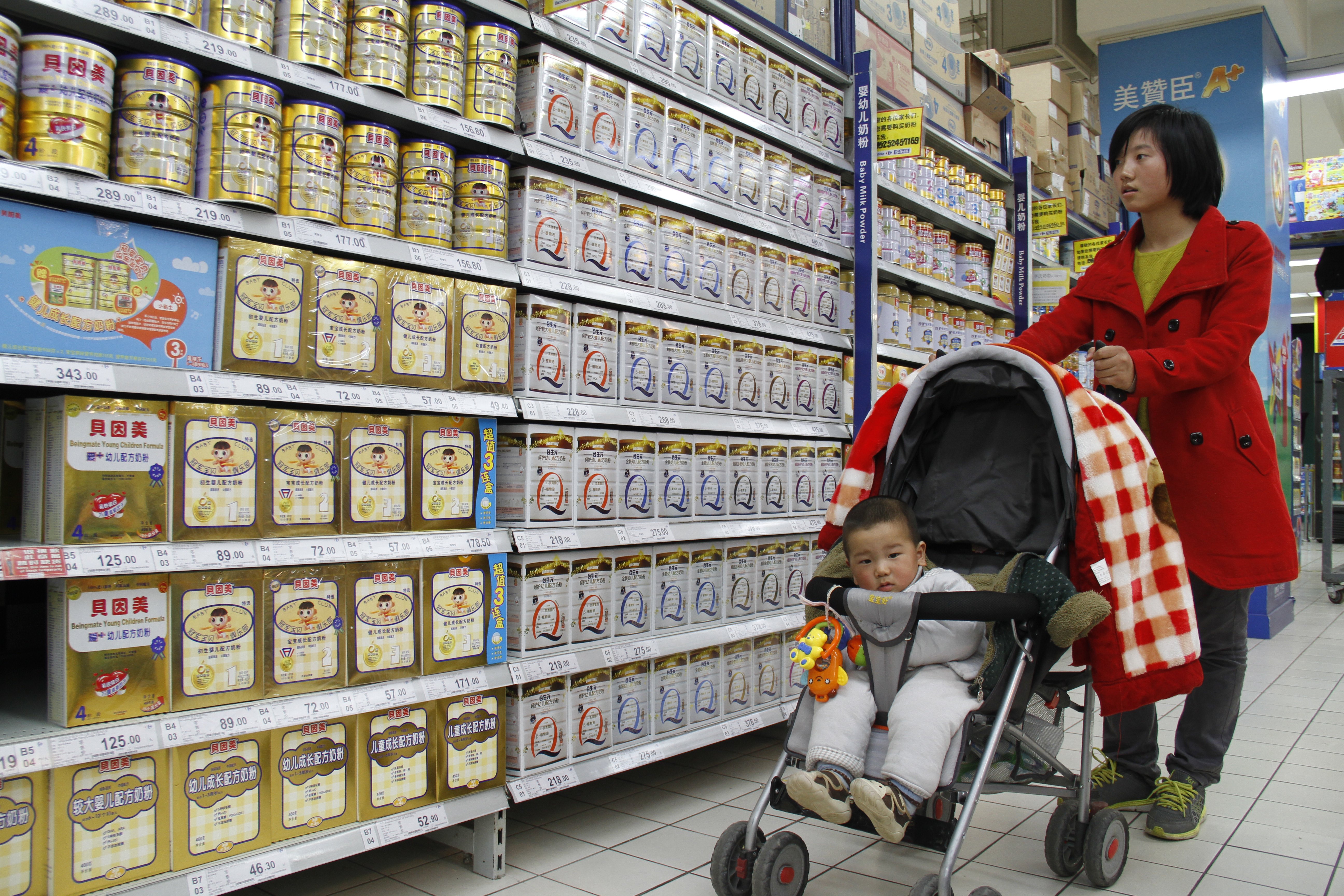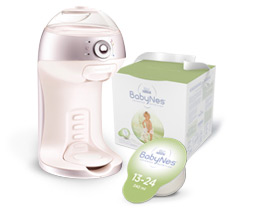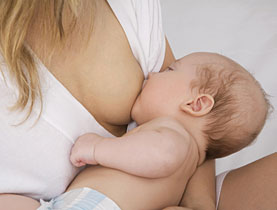Chinese parents drive baby milk powder boom

Mistrust in China after the death of several babies, along with an expanding population and growing middle class, has led to surging demand for Western baby milk formula, presenting both an opportunity and a challenge to Swiss manufacturers.
Demand for foreign formula has remained high since six infant deaths and an estimated 290,000 children fell ill in 2008 from tainted local products. Reports are rife of Chinese baby milk tourists emptying supermarket shelves in Western countries to meet a perceived shortfall of safe formula in China.
Foreign companies have been quick to capitalise on the poor reputation of local formula manufacturers among Chinese parents. The volume of imported formulas quadrupled between 2008 and 2012 along with prices, according to official figures quoted by the China Daily newspaper.
Last year, Nestlé bought Pfizer’s infant nutrition business for $12 billion (CHF11 billion), a deal that increased its previously insipid Chinese market share overnight.
The Swiss food manufacturing giant, which started out more than 100 years ago as a baby milk substitute specialist, is making a late charge at Chinese dominance after living in the shadow of international competitors in the last decade.

More
Profit at the expense of moral values
Renewed focus
Nestlé’s position in China was not helped by allegations of tainted products in both 2004 and 2008, which the company denied.
James Roy, a senior analyst at the Shanghai-based China Market Research Group, believes the rumours cost Nestlé for a while. But the Swiss group has noticeably stepped up its drive to capture more market share in recent months.
“Nestlé did not have such a specific focus on baby milk formula as its competitors did a few years ago,” he told swissinfo.ch. “There was more focus on other food and drink products.”
“But the Pfizer Nutrition deal was very well timed. I can definitely see them recovering and gaining more market share over the next few years.”
Nestlé reported double digit growth for its infant food products in the first three months of this year and said that the Pfizer acquisition had so far performed in line with expectations, without giving any more details.
Nestlé is the world’s largest manufacturer of baby milk formula, according to the Euromonitor International market research group.
But the Swiss company did not feature in the top three companies by retail sales market share in China in 2010, the latest figures Euromonitor has available.
According to Unicef, in 2012 only 28 per cent of babies were breastfed in China.
Volatile market
The market is fraught with risk as an increasing number of counterfeit or falsely packaged products come to light. One of the Swiss players, Hero, has become implicated in a recent scandal involving alleged mislabeling of its products by a Chinese distributer.
“Neither Hero nor the Chinese authorities have found any evidence that Hero’s products on the market are unsafe for consumption or not in line with the defined standards,” the German-owned Hero said in a statement on April 1.
But the mere allegation could cause a potential problem for Hero among a population still scarred by the 2008 scandal. Hero admits it has affected business.
“Sales of Hero Nutradefense have temporarily decreased due to the consumer uncertainty caused by the quality allegations,” said Hero spokeswoman, Jenny Sparks, in a reply to swissinfo.ch by email last month.
Even companies that enjoy a clean bill of health sometimes feel the side effects of servicing a suspicious public.
“The Chinese market is very volatile at the moment,” Michiel de Ruiter, managing director of Swiss milk product company Hochdorf Nutricare, told swissinfo.ch. “There is a big fear of false products, hence the increased number of emails we receive from concerned mothers who ask if the formula they find on the market is really produced by us.”
Risk vs reward
James Roy has noticed a decided twitchiness among Western baby milk formula manufacturers.
“Brands constantly live in fear of the next consumer health report that could be linked to them in some way,” he told swissinfo.ch. “A health scare could kill trust in a brand that could take a long time to win back again.”
However, the potential rewards could easily outweigh the risks. Global sales of baby food are tipped to weigh in at $38.8 billion (CHF36 billion) this year and expand to mouth-watering $60.4 billion by 2017, according to market researchers Euromonitor.
China’s current baby boom is expected to lead the charge with many mothers returning to work much sooner than by Western standards. Euromonitor forecasts Chinese baby food sales to double from $15 billion in 2013 to $29.5 billion in four years’ time.
And worried Chinese parents are likely to continue to rely on foreign brands to meet their growing demand.
“It is going to be very difficult for local brands to regain credibility in the short term,” Roy told swissinfo.ch. “And even when that happens they will be competing from a long way behind the market leaders.”
“Western brands are set to continue to increase market share over the next few years.”
China’s local baby milk formula manufacturers have never recovered from the 2008 melamine scandal that saw six infants die and reports of thousands more seriously ill.
Most Chinese parents still insist on buying Western brands, serviced by a plethora of websites offering speedy delivery of products straight from the shelves of Western supermarkets.
This lead to fears of shortages in other countries, especially Hong Kong, Australia, New Zealand, Germany and Britain.
Supermarkets in some countries started to ration the amount of formula customers could buy, fearing local shortages as tins of formula were mass purchased and shipped to China.
Hong Kong imposed strict limits on the number of tins that could be taken by individuals over the border into mainland China.
But even the threat of criminal prosecution has not deter some people from trying to break the rules, with several arrests being reported.

In compliance with the JTI standards
More: SWI swissinfo.ch certified by the Journalism Trust Initiative



You can find an overview of ongoing debates with our journalists here. Please join us!
If you want to start a conversation about a topic raised in this article or want to report factual errors, email us at english@swissinfo.ch.